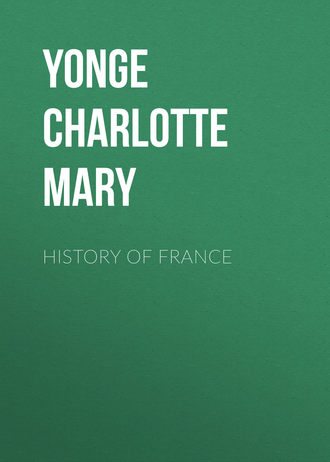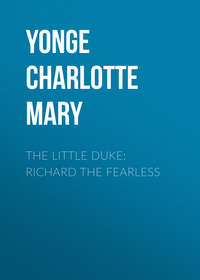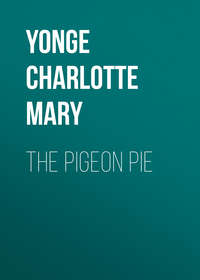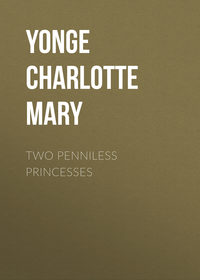
History of France
9. France under Napoleon.—The old laws and customs, varying in different provinces, had been swept away, so that the field was clear; and the system of government which Napoleon devised has remained practically unchanged from that time to this. Everything was made to depend upon the central government. The Ministers of Religion, of Justice, of Police, of Education, etc., have the regulation of all interior affairs, and appoint all who work under them, so that nobody learns how to act alone; and as the Government has been in fact ever since dependent on the will of the people of Paris, the whole country is helplessly in their hands. The army, as in almost all foreign nations, is raised by conscription—that is, by drawing lots among the young men liable to serve, and who can only escape by paying a substitute to serve in their stead; and this is generally the first object of the savings of a family. All feudal claims had been done away with, and with them the right of primogeniture; and, indeed, it is not possible for a testator to avoid leaving his property to be shared among his family, though he can make some small differences in the amount each receives, and thus estates are continually freshly divided, and some portions become very small indeed. French peasants are, however, most eager to own land, and are usually very frugal, sober, and saving; and the country has gone on increasing in prosperity and comfort. It is true that, probably from the long habit of concealing any wealth they might possess, the French farmers and peasantry care little for display, or what we should call comfort, and live rough hard-working lives even while well off and with large hoards of wealth; but their condition has been wonderfully changed for the better ever since the Revolution. All this has continued under the numerous changes that have taken place in the forms of government.
CHAPTER VIII.
FRANCE SINCE THE REVOLUTION
1. The Restoration.—The Allies left the people of France free to choose their Government, and they accepted the old royal family, who were on their borders awaiting a recall. The son of Louis XVI. had perished in the hands of his jailers, and thus the king's next brother, Louis XVIII., succeeded to the throne, bringing back a large emigrant following. Things were not settled down, when Napoleon, in the spring of 1815, escaped from Elba. The army welcomed him with delight, and Louis was forced to flee to Ghent. However, the Allies immediately rose in arms, and the troops of England and Prussia crushed Napoleon entirely at Waterloo, on the 18th of June, 1815. He was sent to the lonely rock of St. Helena, in the Atlantic, whence he could not again return to trouble the peace of Europe. There he died in 1821. Louis XVIII. was restored, and a charter was devised by which a limited monarchy was established, a king at the head, and two chambers—one of peers, the other of deputies, but with a very narrow franchise. It did not, however, work amiss; till, after Louis's death in 1824, his brother, Charles X., tried to fall back on the old system. He checked the freedom of the press, and interfered with the freedom of elections. The consequence was a fresh revolution in July, 1830, happily with little bloodshed, but which forced Charles X. to go into exile with his grandchild Henry, whose father, the Duke of Berry, had been assassinated in 1820.
2. Reign of Louis Philippe.—The chambers of deputies offered the crown to Louis Philippe, Duke of Orleans. He was descended from the regent; his father had been one of the democratic party in the Revolution, and, when titles were abolished, had called himself Philip Egalité (Equality). This had not saved his head under the Reign of Terror, and his son had been obliged to flee and lead a wandering life, at one time gaining his livelihood by teaching mathematics at a school in Switzerland. He had recovered his family estates at the Restoration, and, as the head of the Liberal party, was very popular. He was elected King of the French, not of France, with a chamber of peers nominated for life only, and another of deputies elected by voters, whose qualification was two hundred francs, or eight pounds a year. He did his utmost to gain the good will of the people, living a simple, friendly family life, and trying to merit the term of the "citizen king," and in the earlier years of his reign he was successful. The country was prosperous, and a great colony was settled in Algiers, and endured a long and desperate war with the wild Arab tribes. A colony was also established in New Caledonia, in the Pacific, and attempts were carried out to compensate thus for the losses of colonial possessions which France had sustained in wars with England. Discontents, however, began to arise, on the one hand from those who remembered only the successes of Buonaparte, and not the miseries they had caused, and on the other from the working-classes, who declared that the bourgeois, or tradespeople, had gained everything by the revolution of July, but they themselves nothing. Louis Philippe did his best to gratify and amuse the people by sending for the remains of Napoleon, and giving him a magnificent funeral and splendid monument among his old soldiers—the Invalides; but his popularity was waning. In 1842 his eldest son, the Duke of Orleans, a favourite with the people, was killed by a fall from his carriage, and this was another shock to his throne. Two young grandsons were left; and the king had also several sons, one of whom, the Duke of Montpensier, he gave in marriage to Louise, the sister and heiress presumptive to the Queen of Spain; though, by treaty with the other European Powers, it had been agreed that she should not marry a French prince unless the queen had children of her own. Ambition for his family was a great offence to his subjects, and at the same time a nobleman, the Duke de Praslin, who had murdered his wife, committed suicide in prison to avoid public execution; and the republicans declared, whether justly or unjustly, that this had been allowed rather than let a noble die a felon's death.
3. The Revolution of 1848.—In spite of the increased prosperity of the country, there was general disaffection. There were four parties—the Orleanists, who held by Louis Philippe and his minister Guizot, and whose badge was the tricolour; the Legitimists, who retained their loyalty to the exiled Henry, and whose symbol was the white Bourbon flag; the Buonapartists; and the Republicans, whose badge was the red cap and flag. A demand for a franchise that should include the mass of the people was rejected, and the general displeasure poured itself out in speeches at political banquets. An attempt to stop one of these led to an uproar. The National Guard refused to fire on the people, and their fury rose unchecked; so that the king, thinking resistance vain, signed an abdication, and fled to England in February, 1848. A provisional Government was formed, and a new constitution was to be arranged; but the Paris mob, who found their condition unchanged, and really wanted equality of wealth, not of rights, made disturbances again and again, and barricaded the streets, till they were finally put down by General Cavaignac, while the rest of France was entirely dependent on the will of the capital. After some months, a republic was determined on, which was to have a president at its head, chosen every five years by universal suffrage. Louis Napoleon Buonaparte, nephew to the great Napoleon, was the first president thus chosen; and, after some struggles, he not only mastered Paris, but, by the help of the army, which was mostly Buonapartist, he dismissed the chamber of deputies, and imprisoned or exiled all the opponents whom the troops had not put to death, on the plea of an expected rising of the mob. This was called a coup d'état, and Louis Napoleon was then declared president for ten years.
4. The Second Empire.—In December, 1852, the president took the title of Emperor, calling himself Napoleon III., as successor to the young son of the great Napoleon. He kept up a splendid and expensive court, made Paris more than ever the toy-shop of the world, and did much to improve it by the widening of streets and removal of old buildings. Treaties were made which much improved trade, and the country advanced in prosperity. The reins of government were, however, tightly held, and nothing was so much avoided as the letting men think or act for themselves, while their eyes were to be dazzled with splendour and victory. In 1853, when Russia was attacking Turkey, the Emperor united with England in opposition, and the two armies together besieged Sebastopol, and fought the battles of Alma and Inkermann, taking the city after nearly a year's siege; and then making what is known as the Treaty of Paris, which guaranteed the safety of Turkey so long as the subject Christian nations were not misused. In 1859 Napoleon III. joined in an attack on the Austrian power in Italy, and together with Victor Emanuel, King of Sardinia, and the Italians, gained two great victories at Magenta and Solferino; but made peace as soon as it was convenient to him, without regard to his promises to the King of Sardinia, who was obliged to purchase his consent to becoming King of United Italy by yielding up to France his old inheritance of Savoy and Nice. Meantime discontent began to spring up at home, and the Red Republican spirit was working on. The huge fortunes made by the successful only added to the sense of contrast; secret societies were at work, and the Emperor, after twenty years of success, felt his popularity waning.
5. The Franco-German War.—In 1870 the Spaniards, who had deposed their queen, Isabel II., made choice of a relation of the King of Prussia as their king. There had long been bitter jealousy between France and Prussia, and, though the prince refused the offer of Spain, the French showed such an overbearing spirit that a war broke out. The real desire of France was to obtain the much-coveted frontier of the Rhine, and the Emperor heated their armies with boastful proclamations which were but the prelude to direful defeats, at Weissenburg, Wörth, and Forbach. At Sedan, the Emperor was forced to surrender himself as a prisoner, and the tidings no sooner arrived at Paris than the whole of the people turned their wrath on him and his family. His wife, the Empress Eugènie, had to flee, a republic was declared, and the city prepared to stand a siege. The Germans advanced, and put down all resistance in other parts of France. Great part of the army had been made prisoners, and, though there was much bravado, there was little steadiness or courage left among those who now took up arms. Paris, which was blockaded, after suffering much from famine, surrendered in February, 1871; and peace was purchased in a treaty by which great part of Elsass and Lorraine, and the city of Metz, were given back to Germany.
THE END








